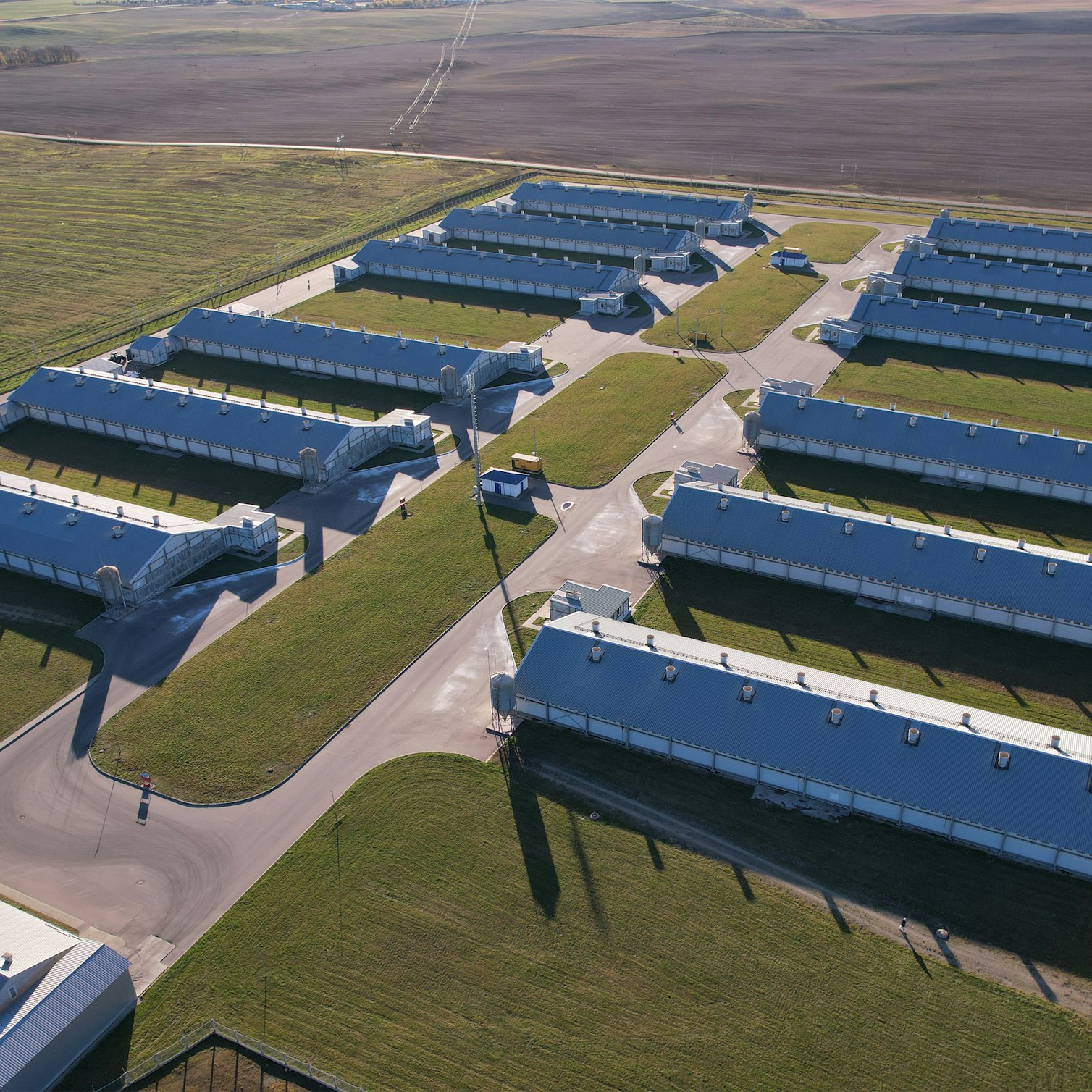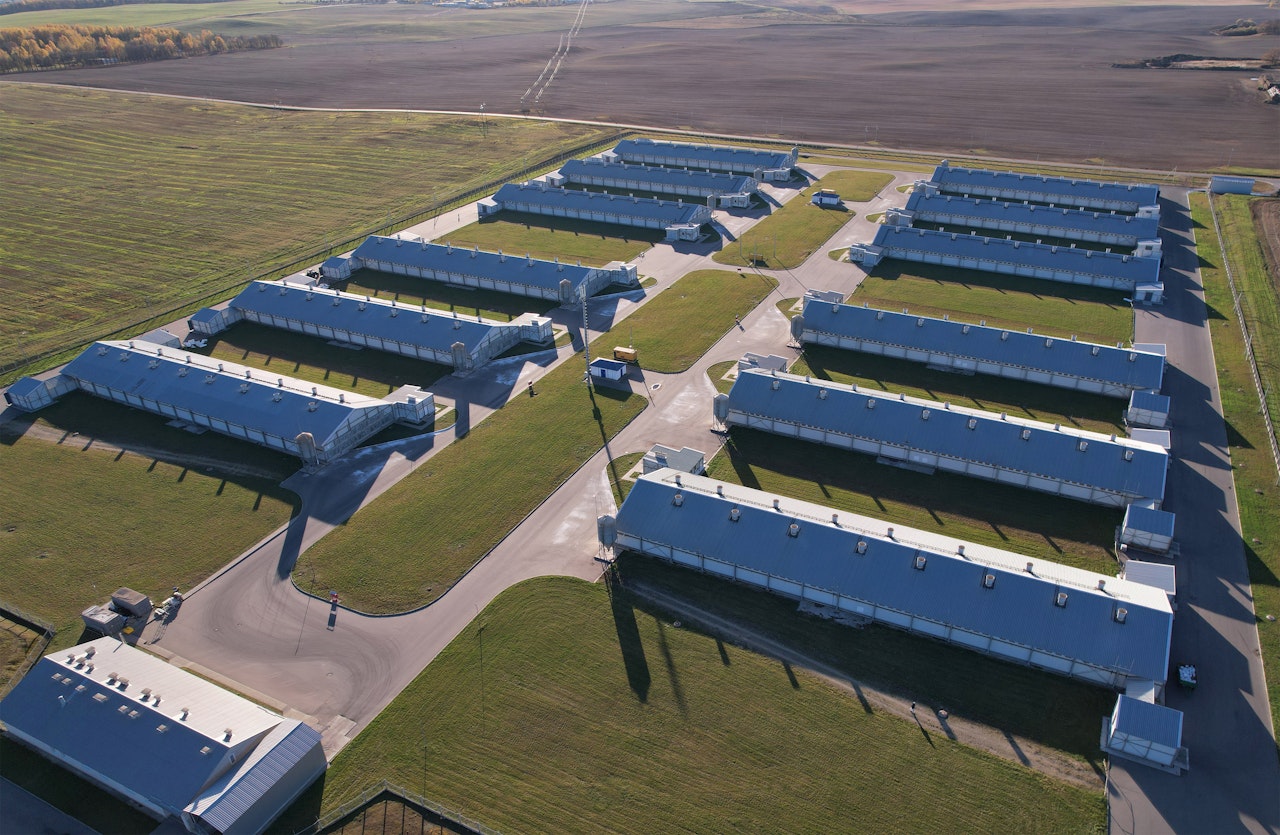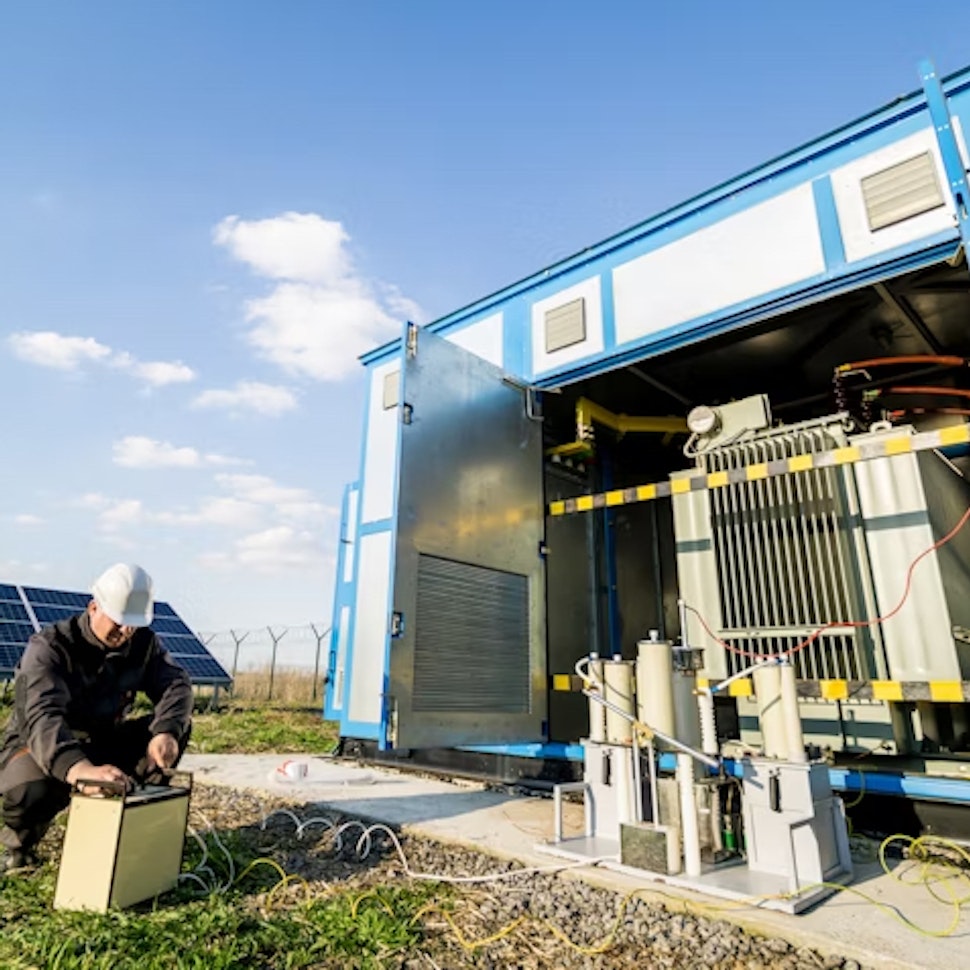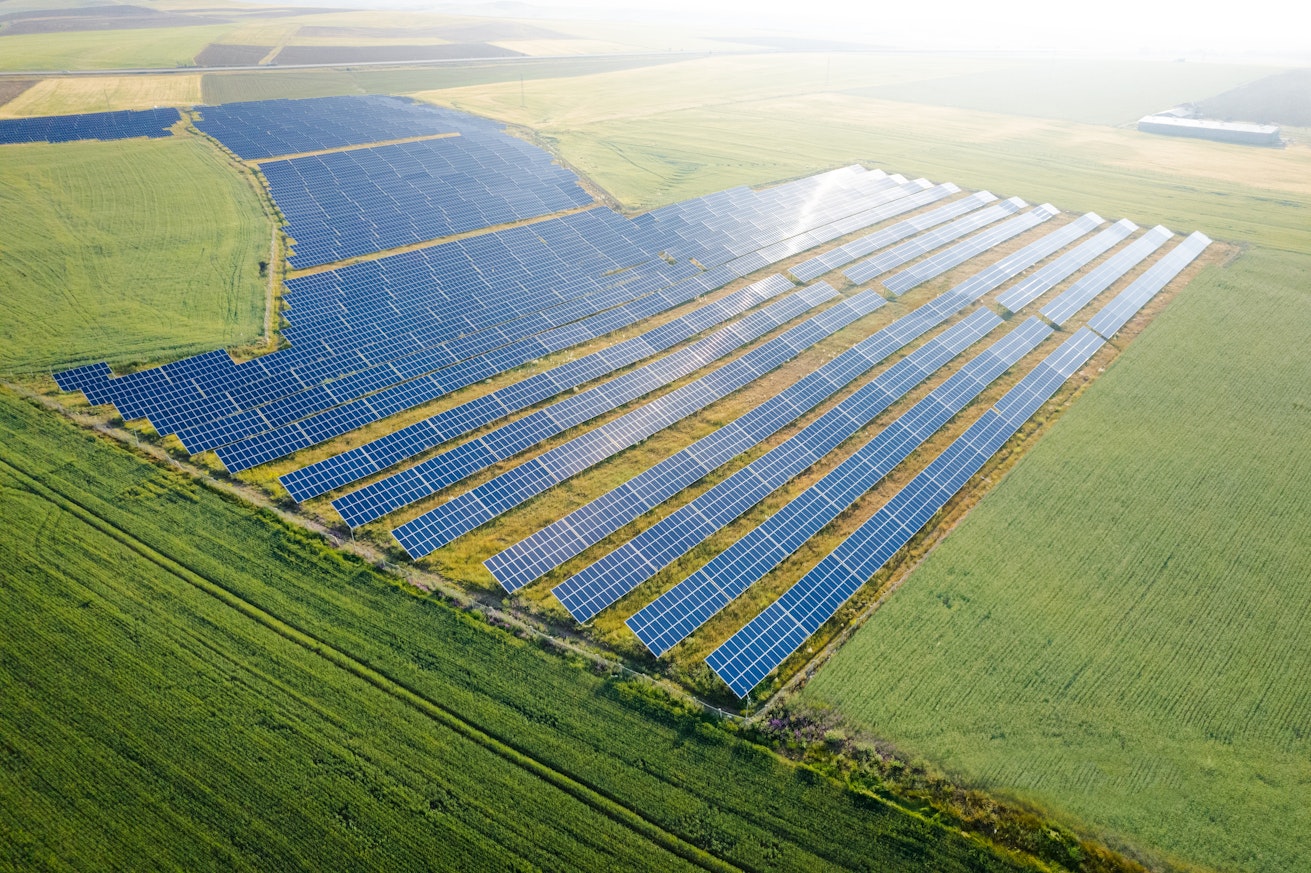- Solar energy blog
- The UK BESS industry is thriving, but what challenges does it face?
The UK BESS industry is thriving, but what challenges does it face?
The UK BESS industry is world-leading, with a capacity of 4.4GW. Find out why battery storage in the UK is increasing and what challenges this industry faces.


Gonzalo de Blas
Territory Manager UK&I and China
Multilingual business development professional with an international background. Motivated and looking to do my bit in making the world more sustainable.

Content
Battery storage systems (BESS) are batteries, typically made with lithium-ion, that can store excess electricity production for release back to the grid. They provide a source of backup power and a way to maximize the output from solar and wind generation — and they’re becoming increasingly important to the UK’s power flow.
In this article, we look at the progress of the UK BESS industry and the challenges ahead.
An overview of the UK BESS landscape
The UK battery storage industry is world-leading, with a total capacity of 4.4GW, second only to the US with a total of 15.5GW — and it’s only continuing to grow.
UK BESS project developers have ambitious expansion plans, as the total capacity of projects in the pipeline has jumped to 95.6GW from just 50.3GW a year ago. There is a combined 4.3GW of capacity under construction, another 30.4GW consented, a further 26GW submitted for planning permission, and an additional 30.4GW in the early stages of development. In short, the UK’s battery storage capacity is expanding significantly — thanks mainly to sped-up planning permissions and extensive government and private investment.

Sped-up planning permission
The government introduced legislation in 2022 to simplify the process of obtaining permits for energy storage projects with a capacity of more than 50MW in England and 350MW in Wales. This has made investments in the sector more attractive by reducing the length and complexity of the approval process.
In the UK, BESSs are also increasingly co-located with solar and wind farms. This allows developers to avoid planning restrictions and reduce network transmission costs while increasing the usable generation during periods of low demand or grid congestion.
By speeding up the time to receive planning permission and increasing the efficiency of renewable generation, developers are contributing to the UK government’s pledge to reach net-zero carbon emissions by 2050.
Private investment
Government and private investment in the UK’s BESS sector are supporting the rapid growth in capacity.
In February 2022, InterGen received a Capacity Market award for its multi-stage Gateway Energy Centre project, the largest in the UK. Phase 1, planned to start operation in October 2025, will have an initial capacity of 320MW, expanding to 450MW. Phase 2, planned for later in the decade, will more than double that capacity to 1GW.
The project indicates the ramp up in battery capacity expected over the next few years, as the UK’s current largest battery system is the 99MW Clay Tye site in Essex launched by Fotowatio Renewable Ventures (FRV) and Harmony Energy in March 2024.
Governmental investment
The Department for Business and Trade published the UK’s battery storage strategy in November 2023, which aims to support innovation to establish a “globally competitive battery supply chain by 2030”. The three-pillar design, build, and sustain strategy focuses on providing financial mechanisms to develop UK leadership in sustainable design, manufacturing and grid resilience, and the skills and collaboration needed for the domestic industry.
The strategy outlines investment of more than £2 billion in new capital and research and development (R&D) financing for the 2025-2030 period, an additional £38 million for the UK Battery Industrialisation Centre, £12 million for the new Advanced Materials Battery Industrialisation Centre, and £11 million for 20 winners of the Faraday Battery Challenge competition to develop future battery chemistries and technologies.
This approach — establishing an innovative and sustainable domestic battery supply chain — will be key to the UK reaching net zero by 2050.
Do you want to dig deeper into UK & NIR? Download this ebook and learn about the UK & NIR energy market, with a focus on solar, and discover the largest PV plants in the region.
Challenges facing the UK BESS industry
While there is clear impetus for the UK industry to grow, there are challenges too. The government’s battery strategy has its limitations as a vehicle for developing utility-scale UK BESS specifically, as much of its focus is on the supply chain for electric vehicle batteries.
There are several other factors to consider as well.
Local resistance
Residents in close proximity to the sites of some battery projects have raised objections, citing the risk of fire close to housing, schools, and wildlife. In Leeds, residents have opposed plans for two BESS sites less than a mile apart, which were chosen for separate projects by Banks Renewables and Harmony Energy.
Permits
The Department for Environment, Food and Rural Affairs (DEFRA) is considering bringing BESS under the Environmental Permitting (England and Wales) Regulations 2016, in response to safety concerns, after a Lithium-ion Battery Storage (Fire Safety and Environmental Permits) Bill was presented in Parliament in September 2022.
If battery storage is brought under the environmental permitting regime, developers will have to take into account the cost and complexity of having to apply for additional permits and remaining compliant. Environmental permits are subject to regulatory review, so new or updated permits may be required periodically.
Regulations
The need to secure planning consent from local authorities, as well as a generating license, depending on the system’s storage capacity, can already extend or delay project development timescales.
One of the consequences of these hurdles is that investors could turn away from the UK to more attractive markets with less regulation and more support, such as the US. The US Inflation Reduction Act (IRA) includes subsidies that significantly reduce the cost of BESS as the country aims to build out its own domestic supply chain.
The UK’s largest BESS projects
With the UK’s energy storage pipeline approaching 100GW, there is a growing number of large-capacity projects under development.
Interested about the largest PV plants? Take a look at some of the largest PV plants in the world and some upcoming projects that will add further to global solar capacity with our ebook.
Sunnica Solar-plus-Battery Energy Storage System
The 500MW Sunnica project is being developed as a 50-50 joint venture between PS Renewables and Tribus Clean Energy. The project, which is located across two sites in Suffolk and Cambridgeshire in Eastern England, is scheduled for commissioning in 2025.
Penso Power-Hams Hall Battery Energy Storage System
The 400MW Hams Hall project in North Warwickshire, England is planned to start operation in 2026. Penso Power, Luminous Energy, and BW Group are joint shareholders, with Penso Power overseeing the project’s deployment operation.
DP World London Gateway Battery Energy Storage System
InterGen’s £200 million, 320MW site at DP World London Gateway, a new port and logistics center in Southeast England, will have the potential to double its capacity after it is commissioned in 2025.
Uskmouth Battery Storage Project
Quinbrook Infrastructure Partners acquired the 230MW Uskmouth project in South Wales in 2022 and completed the development milestones including planning approvals, grid import agreements, design, and equipment procurement. The project started construction in November 2023 and is expected to be operational in the first quarter of 2025. Utility company E.ON has acquired 50% of the project’s capacity and is jointly investing in its construction.
Other future projects
The are larger projects in the pipeline for the coming years. Developer Innova has been granted planning permission for its 400MW Blackdyke Farm BESS in Cumberland, Northern England — the first of its 23GW portfolio of projects to receive full permitting.
West Burton Energy last year acquired the Thorpe Marsh Green Energy Project from Banks Renewables. Its capacity of 1.4GW to be connected to the national electricity grid and 50MW to be connected to the distribution network make it one of the largest energy storage projects globally. West Burton Energy is now in the permit application process.
In addition, Carlton Power has received planning permission for a 1GW Trafford Battery Energy Storage System in Manchester, England, which it will develop in 250MW blocks once it takes a final investment decision.
Preparing for BESS installations
As renewable energy capacity increases, the need to install BESS to manage fluctuations in demand and supply and help grid operators balance power flows is growing too. Luckily, RatedPower’s software can design and optimize BESS capacity in a single tool. It provides the full layout and basic engineering documents in editable formats instantly.
The eternal question: AC or DC Batteries?
In this eBook, we’ll look at these two options in-depth and explore which type of BESS is best for which situation when it comes to designing a solar installation

Latest stories
Related posts
Market analysis
A look at the largest-scale solar projects across the UK
Find out more about how the UK is developing substantial solar power projects, including the Queequeg Renewables Solar PV Park and the Botley West Solar Farm.
Updated 24 FEB, 26

Market analysis
Battery Storage in Africa: From Backup to Backbone
See why Africa is prioritizing off-grid battery storage that operates independently, as 50% of its population doesn’t have access to a stable power supply.
Updated 19 FEB, 26

Market analysis
How Italy is repowering aging solar into assets
Discover more about how Italy is breathing new life into its aging solar plants, boosting output, and driving toward the country’s 2030 climate goals
Updated 27 JAN, 26

- RatedPower
- Solar energy blog
- The UK BESS industry is thriving, but what challenges does it face?
 Watch a demo
Watch a demo


